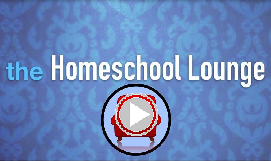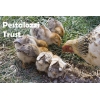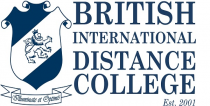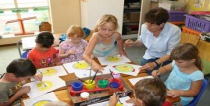Hard questions on BELA Bill
In a recent article, Prof. Rita Niemann, head of academics at FutureLearn, expressed her support for the legislative changes in the Home Education Policy (2018) and BELA Bill. These changes introduce a 6 years’ jail sentence for not registering and consequently not following the national curriculum. She believes : "These penalties are in place to ensure that children receive education aligned to their age, grade, level and ability," and to “ensure that due processes are followed and that children receive an education that is not inferior to the standard expected in a public school." The way in which the BELA Bill attempts “to ensure that children receive education aligned to their age, grade, level and ability” is by following the national curriculum and being monitored against this curriculum. If parents do this, she believes that “home education learners are destined for success”. This article raises a number of hard questions about BELA Bill.
The first question is about competence. The drafters of BELA Bill are so convinced that enforcing the national curriculum is the only way to ensure that children do not receive an inferior education, that they believe that it is justified to jail parents for 6 years who do not follow the national curriculum. If the officials who drafted these changes have such strong views on the matter, one would expect them to have some proven expertise on home education. Before the Department of Basic Education (DBE) embarks on a programme to jail thousands of parents, one would hope that the people who drafted this legislation were experts in the field of home education, who carefully compared the benefits of enforcing the national curriculum against the disadvantage to society of jailing thousands of homeschooling parents. The DBE was requested on various occasions to provide evidence of this proven expertise, but neglected to provide this. Homeschooling parents therefore have reasons to be concerned that the legislative changes were compiled by people without any proven expertise on home education.
The second question is about success. The national curriculum together with the school-based monitoring that accompanies it, was introduced in the school system since 2002. However, when News 24 evaluated the state of education over the last 25 years, it reported : “A national survey (PIRLS 2016) showed that 78% of grade four learners in SA cannot read any language with comprehension. According to the 2015-TIMMS study (Trends in International Mathematics and Science) only 61% of all grade five learners in our schools can do basic maths. Half of the primary schools in SA can be described as cognitive wastelands.”. Since it seems that the introduction of the national curriculum transformed primary schools in SA into cognitive wastelands, why should parents believe that following the national curriculum in home education would make home learners destined for success? This is especially if cognisance is taken that the national curriculum was designed for a school system. Why should a better result be expected in home education, for which the national curriculum was not designed?
The third question is about double standards. The school system makes provision for learners to attend school, without having to learn anything. According to the promotion policy, a learner is only allowed to repeat a grade once in a phase. Thereafter learners are promoted to the next grade, regardless of whether any assessments were passed. There are now also plans that learners will not be allowed to repeat a grade in the foundation phase. This means that school learners can progress from grade 1 to 9, without learning a single thing. If school learners are not expected to meet the standards of the national curriculum, why should home learners be expected to meet these standards?
The fourth question is about purpose. According to the law, a school is an institution that enrols learners for grades. In schools, learners are divided into groups based on age, and knowledge is cut into rigid subjects. For 12 years learners are required to remain in their age groups, stuff state prescribed subject content into their short- term memory, and then spit it out during assessments, only to forget it immediately afterwards. Questions are increasingly being raised whether this system is an efficient way of educating. Finland, who’s education system is viewed as one of the most successful in the world, does not use any standardised assessments until the final matric exam. Making assessments compulsory in law, effectively outlaws more successful education approaches that do not rely on assessments. If legislative changes outlaw educational approaches more successful than the South African school system, it raises the question whether the purpose of the legislative changes is indeed to place home learners on a destiny to success.
The fifth question is about penalty. Parents naturally want to promote the best interests of their children. If home learners who are registered, follow the national curriculum while being monitored are indeed “destined for success”, then one would expect that many more than 1500 out of 100 000 (1.5%) home learners would be registered. It therefore seems that the vast majority of home educators are not convinced that following the national curriculum is the way to success. It is therefore no wonder that it is deemed necessary to increase the penalty from 6 months to 6 years in order to force parents to do something which they do not view as being in the interest of their children. If the parents of a homeschooling family are jailed for 6 years, it effectively destroys that family. The family loses it’s sources of income and will probably never be able to restore it after having a criminal record. Due to this permanent loss of income children will have to be placed in orphanages permanently. If the prison system does not have the capacity to accommodate thousands of homeschooling parents, special concentration camps may need be built for homeschooling parents. This raises the question whether the officials who drafted the legislation can show any independent research that provides evidence that it is better for a child to be educated according to the national curriculum with parents in jail, than receiving an education using a more successful educational approach in a healthy family environment.
The sixth question is about allignment. The article asserts that “Parents still have the option to develop or choose their own curriculums” as long as “they are aligned to the standards set by the national curriculum.” Unfortunately this does not solve anything. The national curriculum is so detailed and prescriptive that the only curriculum that is aligned to the standards of the national curriculum would be the national curriculum itself. Furthermore, legislation does not provide any guidelines on how parents should go about to verify whether a curriculum is aligned to the national curriculum or not. How will this for example be done with a curriculum that does not make use of grades? Without such guidelines it will be impossible for parents to choose any curriculum but the national curriculum.
The above hard questions on BELA Bill will be asked repeatedly in parliament and eventually in the constitutional court, until it is acknowledged that it is in the best interest of children to live in an environment of liberty in learning, where parents have the freedom to choose the type of education that is in the best interest of each individual child. Parents are advised to join the Pestalozzi Trust and Home Education associations in order to empower these organisations to confront legislators and officials with these hard questions.
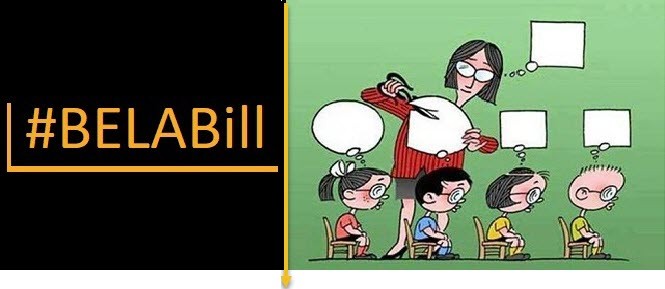
Comments
Events
Legal & Research
Centres
Homeschool ABC
Support
Curriculums
Learn, code and create with Ubbu
Introducing ubbu!An Adventure of Code and Play! Learn, Code ...
British International Distance ...
We offer children in South Africa the opportunity to begin their ...
GED through Learnalot - Grade 12 ...
Why enrol with Learnalot? With Learnalot, you have the flexibility ...
Has no content to show!



